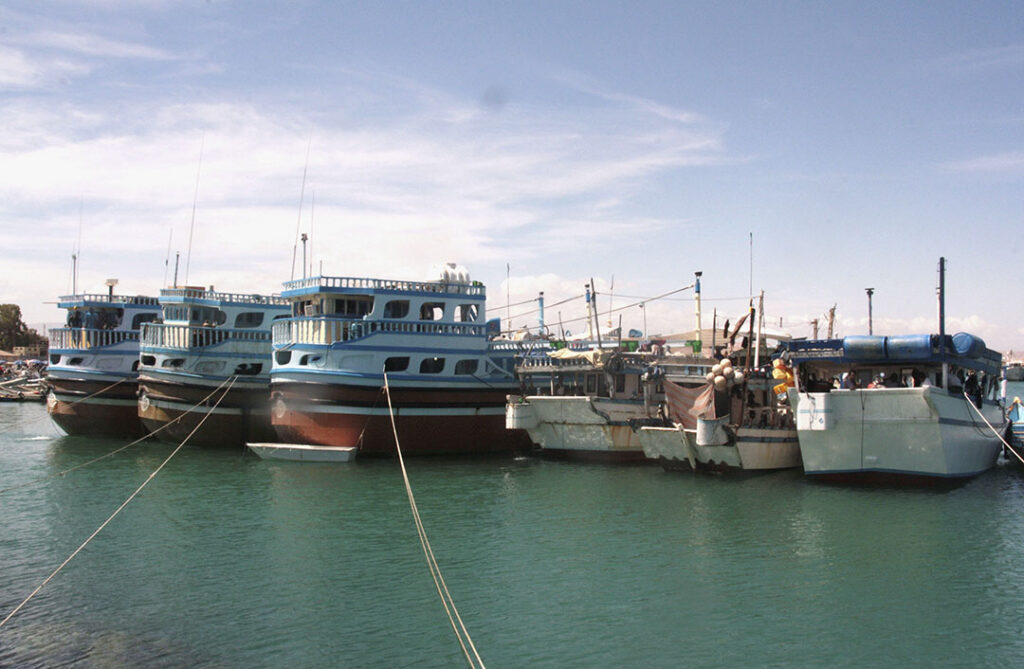At least four vessels from China’s Liao Dong Yu distant-water fishing fleet have operated illegally in Somali waters since at least 2019 and have heavily targeted yellowfin tuna.
Now, stocks of one of the world’s most commercially valuable species is facing a collapse that could devastate Somalia’s economy, affect food security and threaten the livelihoods of up to 90,000 artisanal fishermen. China is the world’s worst illegal, unreported and unregulated (IUU) fishing violator, according to the IUU Fishing Risk Index.
As in other parts of coastal Africa, IUU fishing by industrial and semi-industrial foreign trawlers is forcing Somali’s artisanal fishermen to venture farther out to sea to catch fish. This is more costly and dangerous, and local fishermen often come back with little catch, if any.
“We used to bring home fish every morning,” a Puntland fisherman named Abdi said in a report by the nonprofit organization Global Voices. “Now we bring nothing.”
China isn’t the only country fishing illegally in Somali waters. Many foreign vessels compete for Somali fish, which has resulted in overfishing, declining fish stocks and the destruction of marine ecosystems through bottom trawling, which involves dragging a huge net along the ocean floor, indiscriminately scooping up all manner of marine life.
On May 14, Puntland security forces arrested 27 Yemeni fishermen after the local coast guard intercepted their vessel. Officials said the crew was using a banned fishing method known as “hawi,” which involves using illegal nets, and did not have a registered representative in Puntland, Somali Magazine reported. According to the Puntland Ministry of Fisheries and Marine Resources, hawi is prohibited because it harms marine life and the environment. Puntland is a semiautonomous region within Somalia.
China’s involvement seems to have accelerated after Abdillahi Bidhan, then the fisheries minister of Somalia, in December 2018 signed a $1 million deal that lets Chinese companies fish within 24 nautical miles of the country’s shores. The deal does not allow Chinese trawlers to fish with explosives, use inappropriate nets, catch prohibited species or illegally transship fish at sea, all common practices of Chinese trawlers, worldwide.
Somalia’s Ministry of Fisheries and Blue Economy told the Institute for Security Studies that the agreement would be renewed based on annual independent stock assessments. The deal is still active, and locals say they have seen Chinese trawlers that do not abide by local laws.
“The trawlers come here and take everything from our seas. Fish, lobsters, nothing is spared,” a local fisherman named Liban told Al Jazeera, saying the ships are visible from the shores of Eyl.
Liban, a pseudonym, was among a band of armed and angry Somali fishermen who in November 2024 seized a Chinese fishing trawler with the Liao Dong Yu fleet that was operating under fishing licenses obtained from Puntland authorities. Hijackers released the vessel and its 18-man crew in mid-January 2025 for a reported $2 million ransom.
To address illegal fishing, Somalia’s Ministry of Fisheries and Blue Economy updated its vessel licensing guidelines to increase transparency and identify illegal activities. Mogadishu also has signed a defense agreement with Turkey that includes patrols by the Turkish Navy, and Puntland continues to strengthen its Maritime Police Force, according to Risk Intelligence, a Danish company that provides independent, intelligence-led security advisory services.
Somalia’s splintered political landscape hinders its ability to address IUU fishing. Although a 2018 agreement gave the central government the sole rights to sell fishing licenses, a 2021 report by the Global Initiative Against Transnational Organized Crime reveals that Puntland has continued to sell its own licenses. This fragmentation makes it difficult to collaborate and cooperate in efforts to fight the scourge.
The United Nations Office on Drugs and Crime (UNODC) has helped Somalia address IUU fishing through visit, search, board and seizure (VBSS) and information management sharing training to educate Somali authorities. The government of Denmark, UNODC and the United States Bureau of International Narcotics and Law Enforcement Affairs also have donated patrol boats to the Bossaso Port Maritime Police Unit in northeastern Puntland.
“Without the vital support and guidance of UNODC and donors, we would not have been able to undertake our maritime law enforcement operations to fight crimes at sea, notably in the Gulf of Aden, which is an essential conduit for international commerce,” Salad, a senior Somali VBSS officer, said on the UNODC website.

